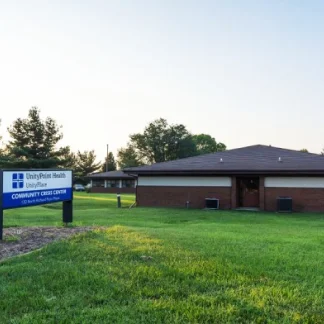Cobblestone Rehabilitation
Cobblestone Rehabilitation is a private rehab located in Peoria, Illinois. Cobbl...
Human Service Center on Richard Pryor Place offers outpatient treatment for individuals with alcohol and/or substance addiction. The program includes individual counseling, group therapy, assessment and more. Human Service Center on Richard Pryor Place is located at Peoria, Illinois.
HSC offers a continuum of services which includes: Centralized non-emergency intake and assessment services; mobile crisis intervention services 24 hours/day, 7 days/week; residential medical detoxification services; office based psychiatric assessment and medication treatment services; community-based and outpatient mental health case management and counseling services as well as different levels of residential treatment and independent living settings for individuals who are experiencing symptoms of mental illness; gender-specific outpatient and residential substance use treatment services; medication assisted treatment services for individuals dependent on opiates and/or alcohol; and, residential, mental health and substance use treatment services for the criminal justice population.
Contact us for more information: (309) 671-8960

Connect with Human Service Center on Richard Pryor Place by calling their admissions team directly.
(309) 671-8960 Website Get DirectionsGroup therapy is any therapeutic work that happens in a group (not one-on-one). There are a number of different group therapy modalities, including support groups, experiential therapy, psycho-education, and more. Group therapy involves treatment as well as processing interaction between group members.
In individual therapy, a patient meets one-on-one with a trained psychologist or counselor. Therapy is a pivotal part of effective substance abuse treatment, as it often covers root causes of addiction, including challenges faced by the patient in their social, family, and work/school life.
In individual therapy, a patient meets one-on-one with a trained psychologist or counselor. Therapy is a pivotal part of effective substance abuse treatment, as it often covers root causes of addiction, including challenges faced by the patient in their social, family, and work/school life.
Cobblestone Rehabilitation is a private rehab located in Peoria, Illinois. Cobbl...
Alcohol and Related Counseling is a private rehab located in Peoria, Illinois. A...
The Human Service Center - New Leaf Lodge is a residential treatment program tha...
The Human Service Center–Community Crisis Center, in Peoria, Illinois, is a 12 s...